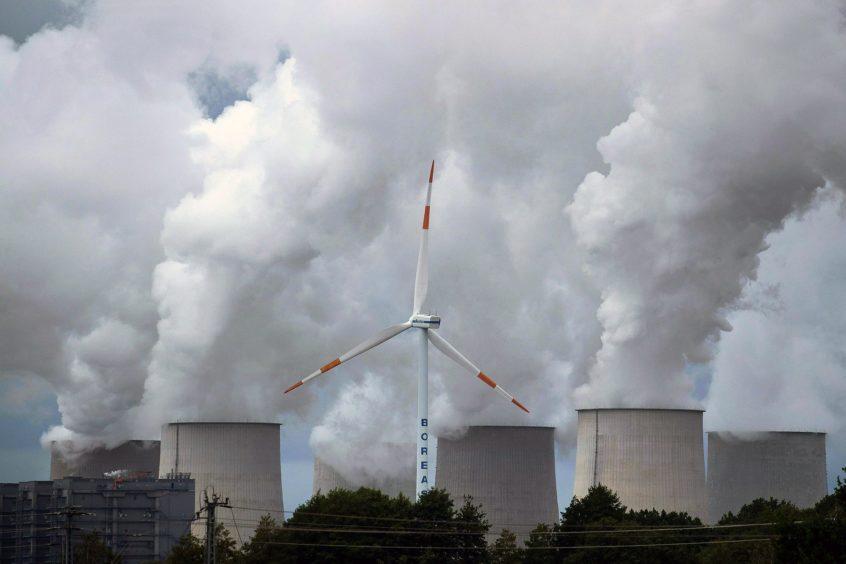
Everyone you talk to agrees environmental, social, and governance (ESG) is critical to finance. Where people differ, though, is how best to achieve the goals this timely initialism sets out to capture.
A third of the world’s assets under investment have made ESG commitments under the Net Zero Asset Managers Initiative.
ESG sustainable financing
ESG’s forerunner was corporate social responsibility (CSR).
“There was a lack of maturity in the market, and a lack of readiness. Everything accelerated in 2020, marked by the Blackrock announcement in January 2020,” Workiva’s director of growth solutions Natalia Kaleta-Schraa, said.
Blackrock’s CEO Larry Fink letter declared a “fundamental reshaping of finance”. It highlighted concerns around climate change and disclosure – while also setting the scene for increased socially responsibility investment decisions.
Blackrock would be more likely to vote against boards where they fail to make “sustainability-related disclosures”, Fink said. “Disclosure should be a means to achieving a more sustainable and inclusive capitalism.”
ESG is not just about planting trees, Kaleta-Schraa said. “It’s a part of the core strategy aimed at having access to sustainable capital. It’s about producing less carbon but also about what are the company’s strengths, and where there is room to do better, what can be offset.”
Scrutiny
Workiva provides companies with the technology tools to make investment strategies and financial performance disclosures to regulatory bodies easier.
“We see a shift in the market,” said Kaleta-Schraa. “We’re helping customers put together sustainability disclosures. Early efforts had sometimes seen vanity projects or a genuine focus on providing data, but in ways that didn’t provide the required transparency.”
These efforts had tended to steer clear of metrics and were largely up to the discretion of the companies. “Investors are now looking with more scrutiny. That fits well with what we do and there’s a synergy with financial reporting.”
The question of disclosure has migrated upwards, Workiva’s senior director of product marketing Steve Soter said.
“If you’re going to raise capital, investors will want ESG metrics, it’s not just communications anymore. The CFO is participating – and companies need help with how to manage data and best practices. It’s a rapidly changing landscape.”
Moving Targets
Operating in financial markets requires ESG compliance – even while the sector lacks nuance.
There has been a growth of companies trying to shed light on the problem through analysis of ESG compliance. Conclusions can vary widely, which can have a serious impact on a company’s ability to secure financing.
Trying to rate companies is “a bit of a serious business and a quack business at the same time”, said Kosmos Energy’s vice president for sustainability Mike Anderson.
“There are some deep deficiencies among rating agencies. It’s hard to get looked at properly as a small company. That is a problem because investment vehicles use these rankings as standards, without necessarily looking into the company,” Anderson continued.
He gave the example of scope 1 emissions. Kosmos may drill no wells one year, then three the next, at which point it appears the company’s emissions are increasing. “We can mitigate that and reduce that. But rating agencies want to track a downward trajectory and can’t explain those.”
Companies have to engage with the ratings agencies but also the banks who use them, the Kosmos executive continued.
Who NOCs?
Even the world’s largest oil companies must jump through ESG hoops. National oil companies (NOCs) have turned to raising bonds for cash – opening them up to ESG scrutiny.
NOCs face similar problems in how to meet required sustainable investing targets.
MSCI ESG Research, for instance, has given Saudi Aramco a BB rating, around the average for oil and gas companies. Sustainalytics, meanwhile, gave Aramco a 50.5 rating, saying it was a severe risk.
Impact of Emissions and Climate Change
Foremost for energy companies is the question of carbon and climate change.
“Societal attitudes have translated into ESG pressure from investors and regulators globally,” McKinsey partner Jayanti Kar said. Investors are seeking “robust transition plans to ensure future stability as well as commitments to emissions reductions”.
There are differences between jurisdictions, she continued, but some common themes have emerged. For instance, Task Force on Climate-related Financial Disclosures (TCFD) is emerging as something of a standard in the energy industry, Kar said.
Furthermore, countries are making plans to assess global carbon emissions. The European Union, for instance, has talked of a border tax adjustment. “Border taxes in other regions or global carbon intensity metrics may gain traction.”
Kosmos has prepared its reports in line with TCFD standards.
Broadly, companies should behave to one standard of operations, Kosmos’ Anderson said, even while this may pose some financial performance difficulties.
“International companies have to have conversations with host governments about how that fits with their economic and cultural frameworks in how it’s applied.”
Anderson gave the example of gas flaring. In the US, the government is increasing pressure to halt this practice, which is also rife in West Africa.
“There is an inequity in asking a state, such as Angola, to cut flaring and therefore reduce oil production. Driving down the carbon content loses that state income. There’s a different trajectory in every country.”
Leading Line
Much of the ESG investing pressure is manifesting from governments and regulators.
In mid-March, the US Securities and Exchange Commission (SEC) asked the public to provide comments on its plans. Among the topics raised by SEC chair Allison Herren Lee were whether companies should report emissions and goals and how they have analysed risks and costs around climate change.
Additional disclosures from corporate governance may be required from private companies as much as public, she said.
The public has 90 days to respond to the SEC’s invitation, with commenters invited to provide empirical data where possible.
Beyond the slightly dry SEC notice, Lee put forward the case for ESG interest in a talk at the Center for American Progress.
Previously, she said, the idea of socially responsible investing was seen as unconnected, or at odds, with a focus on profit.
“That supposed distinction – between what’s “good” and what’s profitable, between what’s sustainable environmentally and what’s sustainable economically, between acting in pursuit of the public interest and acting to maximise the bottom line – is increasingly diminished,” Lee said.
ESG factors have become increasingly important and are seen as a “core risk management strategy for portfolio construction”. Companies with money in the market have taken the ESG demands to heart and these are “significant drivers in decision-making, capital allocation, and pricing”.
The Potential for Stranded Assets
Among investment decisions are concerns about stranded assets. If a company invests in a hydrocarbon resource, will it be able to produce it, or will demand run out before that point?
Kosmos has taken this to heart. The explorer has shifted away from frontier exploration plans, based on a projection that future oil demand would not sustain such operations. From entering an untested basin to first oil may take 10-15 years, or longer, Kosmos’ Anderson said.
“The economic scenario does not work for wildcat exploration,” he said.
The company has shifted its focus instead to exploration around existing infrastructure. As such, Kosmos can continue producing crude “in as low carbon manner as possible”, Anderson explained, “while also satisfying investors”.
Investors are increasingly focused on areas that will be resilient in the face of climate change and a shift away from hydrocarbons, McKinsey’s Kar said. “They are requesting robust transition plans to ensure future stability as well as commitments to emissions reductions.”
Global Energy Cash Crunch
Capital markets expect higher growth in renewable and more environmentally responsible investments than in traditional oil and gas. Returns in oil and gas have lagged the cost of carbon over the last 10 years, she said. “Low-carbon players have seen higher spreads than oil and gas players.”
She went on to say that energy companies had to show evidence of sustainable developments and positive action. “For oil and gas companies, for example, the percentage of near- and long-term capital allocation dedicated to hydrocarbons or the current and projected carbon intensity of hydrocarbon production are key indicators of tangible change.
Banks are putting these requirements into their investment policies. NatWest, for instance, has said it will no longer provide project finance for oil and gas exploration, or fracking.
Furthermore, more broadly, it has said it will stop lending to major energy producers unless they have a “credible transition plan” aligned with the Paris Agreement. As demonstration of its determination, NatWest has cut energy industry lending exposure by £800 million in 2020, to £4.1 billion.
Far and Fast Enough
Whether investors are taking a tough enough line is open to interpretation.
Blackrock may have played a significant role in bringing ESG investing mainstream. This has not made it immune from criticism.
Reclaim Finance gave Blackrock a score of 17 out of 100. The asset manager continues to support companies that are expanding their coal activity, a report in April said.
Cross-border challenge
One area flagged by Lee is that ESG factors are “global challenges for global markets that demand global solutions”.
The European Union has also taken steps to track ESG progress. The group enacted its Sustainable Finance Disclosure Regulation (SFDR) on March 10.
The EU went on to publish sustainable finance reporting requirements on April 21. This aims to classify what is green – and what is not – in a bid to protect investors from greenwashing.
Those outside the EU will still have to be aware of requirements if they wish to seek financing from European sources. The UK, for instance, has set out on its own direction but companies will have to bear EU and domestic regulations in mind.
The UK’s Financial Conduct Authority (FCA) said in late 2020 that companies with a premium listing will have to disclose whether they are providing the information required by the TCFD.
The TCFD sets out four “pillars” of disclosure, with 11 more specific areas under these.
The UK Department for Business, Energy & Industrial Strategy (BEIS) launched a consultation on extending disclosure requirements to large listed and private companies. The rules would require the entities to provide some, but not all, the information required from premium-listed companies.
The FCA said that increasing disclosure of climate change risks would allow for “more informed pricing and drive investment towards greener projects and activities”.
The Legal risks of ESG Finance
A partner at Mayer Brown, James Whitaker, said the rapid increase in ESG interests has driven stakeholders to consider how best to measure this.
“A very apparent difficulty in this regard arises from the continued absence of a global, standardised, framework or metric against which performance can be measured, although the campaign for such a standard is quickly gaining traction,” Whitaker said.
The importance of veracity in environmental disclosures – or greenwashing – is of particular interest when considered in the context of climate litigation.
Describing this as a “key emerging litigation – and regulatory – risk”, Whitaker noted the importance of being able to prove statements.
“In the absence of a standardised framework against which to measure and, crucially, report sustainability efforts, great care needs to be taken that statements regarding ESG factors are both accurate and supportable,” he said.
“The urgent need to embrace ESG principles, and develop sustainable practices, is, of course, understood by many companies already. But the fact that much of the driving force behind ESG originated with, and continues to come from, powerful shareholders, is important.”
The Mayer Brown partner pointed to examples in the US. Those companies that “fall short on ESG performance (however it is measured) or, at least as egregiously, misreport that performance, face the real threat of shareholder litigation”.
Tool Talk
Varying standards and requirements make disclosures all the harder.
Companies face an “alphabet soup” in the regulatory landscape, Kaleta-Schraa said.
“It is material for investors that companies are compliant with country and international bodies but there’s a jungle of requirements. Advisory firms can provide expertise but reporting is only as good as the tools available.”
Soter agreed, saying that when cash is in play, disclosures must “withstand scrutiny. Companies need the tools to facilitate transparency and audit readiness.”
Beyond the Environment
From an energy industry perspective it is often easy to focus on the carbon emissions aspect of ESG and overlook other aspects.
There are broader trends at work in society, though, calling for change and exerting pressure on financial and regulatory areas.
Companies that fail to act, or react, to changes in society are seen as approving of the status quo. As society changes – for instance in terms of attitudes towards homosexuality – companies are put on the spot.
As such, corporates are making pledges of support and increasing disclosure on employment.
The FCA has flagged up the importance of diversity in companies.
A speech from the FCA’s CEO Nikhil Rathi noted that diversity was not just a social good. “Diversity reduces conduct risk and those firms that fail to reflect society run the risk of poorly serving diverse communities. And, at that point, diversity and inclusion become regulatory issues,” he said.
“Be a force for good,” Kosmos’ Anderson said. “That sounds soft but there’s a hard business edge to this. Do it right and there’s a compelling business element to it.” ESG is “not what you do, but how you do it,” Anderson said.
Opinions on whether it is harder to change the world’s energy systems or prejudices naturally vary.






 © Shutterstock
© Shutterstock